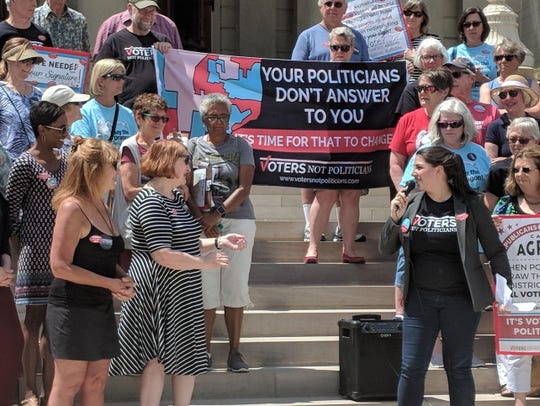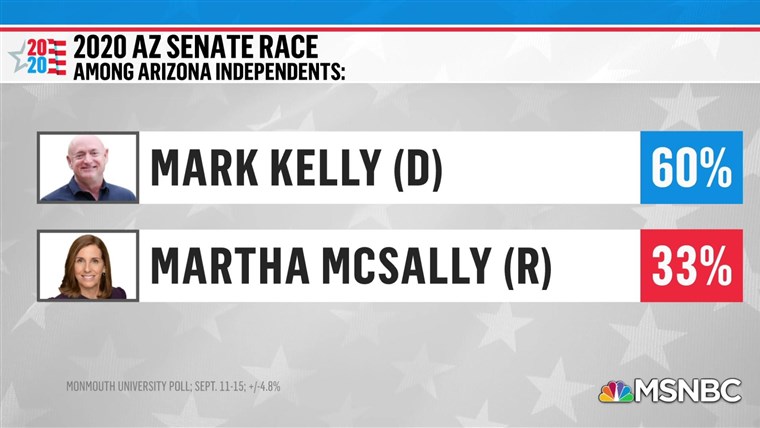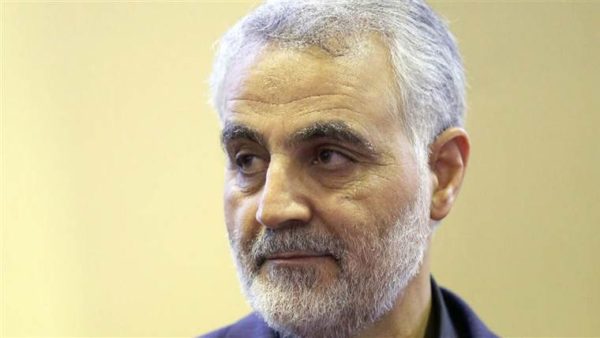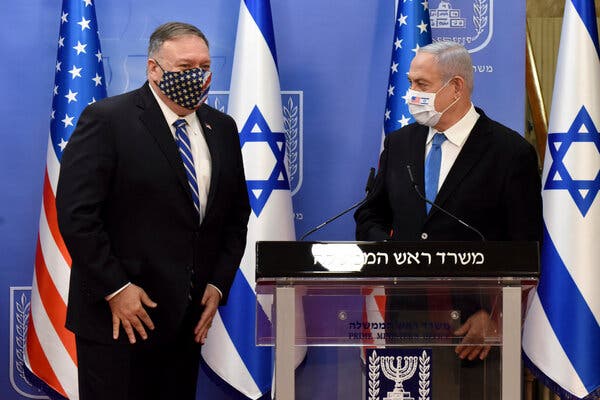CONNECTCOMMENTEMAILMORE
Lansing — After years of debate, a legal battle and a multimillion-dollar campaign to change who draws Michigan’s political districts, Vincent Falzon could get the job — and he doesn’t want it.
Falzon is among the 200 semifinalists for 13 spots on the state’s new independent redistricting commission, which will begin redrawing the political lines for the Michigan House of Representatives, Michigan Senate and U.S. House after the 2020 census. The new lines will take effect for the 2022 election.
“I don’t want anything to do with it,” 67-year-old Falzon from Oscoda said last week. “I don’t want to travel around Michigan redistricting anything.”
A Detroit News analysis of the 200 semifinalists found a diverse group with varying levels of interest in redrawing political boundaries. Some applicants had political ties even though the “independent” panel is supposed to take partisan politics out of redistricting.
The list includes an Oakland County lawyer who works as a special assistant attorney general. The lawyer gave thousands of dollars to the campaign of Michigan’s top election official, Democratic Secretary of State Jocelyn Benson, who oversaw the random selection of the 200 semifinalists from thousands of applicants, and thousands in cash to the Michigan Republican Party chairwoman when she was a state lawmaker.
By law, the panel will ultimately feature four Republicans, four Democrats and five independents — those who say they don’t affiliate with a party.
Many of the semifinalists listed as Democrats or Republicans have no track record of financially supporting their parties’ candidates, according to a review of campaign finance disclosures. But some of the non-affiliated semifinalists have only financially backed candidates on one side of the political aisle.
Some semifinalists have never been involved in politics before. But one has been a city clerk in the Upper Peninsula for 20 years.
A handful of the semifinalists, such as Falzon, don’t want to do the commission work, while others worked to create the redistricting commission and are thrilled about potentially serving on the panel.
Scott Dennis, a librarian at the University of Michigan, contributed to $100 to the Voters Not Politicians campaign, which backed the 2018 constitutional amendment to take the power to redraw district lines every 10 years away from the Legislature and give it to the new commission. He also went door to door to promote the effort, which ultimately passed with 61% support.
Michigan has been one of the most gerrymandered states — meaning districts were drawn to benefit the party controlling the Legislature, said Dennis, who hopes to be one of the four Democrats on the panel.
“I am very concerned about what has been happening in our politics,” he said.
Under Michigan’s old redistricting system, the party in control of state government set the playing field for the next decade. Democrats have argued that after the 2010 census, the Republican-led Legislature and governor’s office drew political maps that helped the party maintain control by isolating Democratic voters in certain districts.
In 2018, Democratic candidates for the Michigan House got more votes than Republicans, but Democrats won only 52 of the 110 seats. Republicans argued the Democrats ran bad campaigns that resulted in the GOP maintaining control of the House and Senate.
Dennis was one of the more than 9,300 Michigan residents who applied to be on the new redistricting commission that would alter the redrawing process. Through a random selection process, he’s now one of the 200 semifinalists.
“It’s mind-blowing,” Dennis said of the idea of potentially being on the commission he helped institute.
How process will work
Until June 1, the Michigan Department of State made applications available for those wanting to serve on the new redistricting commission. The Michigan Department of State also sent out applications randomly to about 250,000 Michigan voters.
Registered voters could apply. But individuals and their families members who hold partisan office, are lobbyists or political consultants or serve in positions within political parties were barred from being on the new panel.
Ultimately, more than 9,300 people applied. On June 24, the Michigan Department of State used demographic data to randomly select a pool of 200 semifinalists who are representative of the state.
Of the 200 semifinalists, 60 affiliate with the Democratic Party, 60 affiliate with the Republican Party and 80 don’t affiliate with either major party.
By Aug. 1, the leaders of the Michigan Legislature — the top Democrats in the House and Senate and the top Republicans in the House and Senate — will each be able to strike five applicants. That culling will eliminate 20 semifinalists.
In mid-August,the 13 commission members will be randomly selected from the remaining 180 finalists. Four will be Republicans, four will be Democrats and five will be independent.
As the lawmakers vet the semifinalists, they’ll presumably be looking for those who actually don’t want to serve on the commission, like Falzon, and others who declare not being affiliated with a party but might lean one way or another.
Take Bill Wolf of Ludington. He is one of the 80 non-affiliated semifinalists. But campaign finance disclosures show that in in 2014 he gave $530 to the Mason County Democratic Party and $250 to Democratic gubernatorial nominee Mark Schauer.
Wolf, who’s retired, said he is not currently a member of the Democratic or Republican parties and went from self-identifying as a conservative when he was young to becoming “pretty much a lefty” as he grew older.
Having an independent commission draw the political lines is the best way to bring fairness back to politics, he said.
“This is not a party thing,” Wolf added. “This is: Let’s take it away from the politicians. Both sides.”
Mystified semifinalists
Falzon, who’s listed as a Republican applicant, is less excited about serving on the commission. He said he filled out the application that was sent to his home because he thought he had to. Falzon said he tried to answer the questions in a way that would let people know he didn’t want to be selected.
To an application question of whether he could do the job impartially and in a way that “reinforces public confidence,” Falzon answered “no.” He was one of two semifinalists who said “no” to the question.
He also replied that he couldn’t collaborate with his fellow commission members to reach a consensus. That question is asked because, ultimately, two members from each affiliation have to support the final maps.
Falzon said he was surprised he was a semifinalist given his answers.
“I am disgusted with everything,” he said of his thoughts on politics at the current moment. “I don’t even like watching the news anymore.”
The oldest of the 200 semifinalists is Dorothy Hammes, 84, of West Bloomfield. On her application, she said she wouldn’t be able to fulfill the duties of a commissioner.
The 13 commissioners will serve for more than a year with periods when they work full-time and periods when they work part-time. They have to travel to 15 public meetings across the state and are paid about $40,000, according to the application.
“I told them I can’t do it,” Hammes said this week.
Under the Michigan Constitution, the secretary of state couldn’t eliminate an applicant, like Falzon, from the pool but he was given an opportunity to withdraw his application, Benson’s spokesman Jake Rollow said.
Nancy Wang, executive director of Voters Not Politicians, encouraged legislative leaders “to take a close look at the applications and evaluate whether semifinalist applicants are able to approach the role responsibly, collaboratively and impartially.”
Wang also noted that the commission can remove members by a super-majority vote across party affiliation if a member is unable to fulfill their constitutional role, including “performing his or her duties in a manner that is impartial and reinforces public confidence in the integrity of the redistricting process.”
‘Winning a lottery ticket’
Among the other commission semifinalists are a city clerk, a geographer and a lawyer who’s contributed to candidates on both sides of the aisle.
Seven semifinalists are under the age of 21, according Department of State data. The youngest is 18-year-old Josiah Jaster of New Lothrop, one of the Republican applicants. He graduated from high school before his 17th birthday and is now double majoring in applied mathematics and computer science at Kettering University.
The skills involved in redistricting, gathering data and making decisions based on the numbers apply to his interest, Jaster said.
“Whatever is most honest and fair to the people of Michigan is what I think should happen,” he said of the process.
The city clerk is Karen Gullan from Ironwood in the Upper Peninsula. While elected officials to partisan offices are barred from serving on the commission, Gullan works in an appointed, nonpartisan position. She has been a city clerk for about 20 years.
“It was like winning a lottery ticket,” said Gullan, who hopes to use her experience to help with the redistricting process.
Tony Daunt, executive director of the conservative Michigan Freedom Fund, which has opposed the redistricting commission, criticized the fact that Gullan is a semifinalist.
He said it was an example of “the absurdity” of the qualifications for serving on the commission.
“The stepson of a woman who ran for township trustee six years ago would be prohibited, but a sitting city clerk is totally fine because they’re ‘nonpartisan,'” Daunt said.
But Cynthia Dai, who served on a similar redistricting commission in California, said her state had three local government officials on its 14-member panel.
“It’s actually really helpful to have someone who knows how to run a meeting,” Dai said.
Another semifinalist who’s not affiliated with a party but is politically involved is Mark Zausmer, a lawyer from West Bloomfield. He has made about $35,000 in political contributions since the start of 2010, according to state campaign finance disclosures. He also has worked as a special assistant attorney general on the Gordie Howe International Bridge project, according to Attorney General Dana Nessel’s office.
Zausmer made $3,700 in contributions — in-kind and direct — to the campaign of Benson, Michigan’s top election official and a Democrat, ahead of the 2018 election. He also has given $1,250 to committees tied to Senate Minority Leader Jim Ananich, D-Flint, who is one of the four lawmakers who each get to eliminate five individuals from the semifinalist list.
Zausmer has also supported Republicans, including giving $3,800 to committees tied to former state Rep. Laura Cox, who is now chairwoman of the Michigan Republican Party.
“I support candidates, not parties,” he said of his contributions.
The lawyer said he believes it’s important for good government to have competitive districts.
Dai, the former California redistricting commissioner, said semifinalists who’ve made political contributions might get the attention of lawmakers, who can strike 20 candidates as a “safeguard” for the process.
“We basically let the Legislature do what they’re good at, which is oppo (opposition) research,” she said.
One of the Democratic semifinalists to draw Michigan’s next political maps is Michael Libbee, a geographer and professor emeritus at Central Michigan University.
Libbee called serving on the redistricting commission a “tremendous role.”
“I had no idea how many applications there were going to be,” he said. “I thought it was very much a long shot.”
“But I knew that if I didn’t put in an application, my chances were zero.”
cmauger@detroitnews.com
CONNECTCOMMENTEMAILMORE
Read or Share this story: https://www.detroitnews.com/story/news/politics/2020/07/22/meet-candidates-redraw-michigans-political-boundaries/5461317002/



